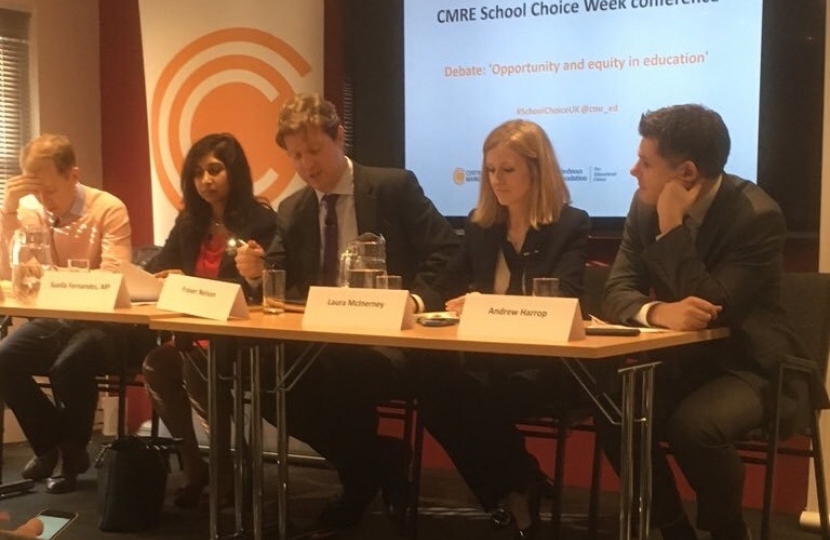
The advantages of those born to wealth usually chart a course to further success. The less advantaged play catch up from the start – with variable results. Sadly, this injustice embeds inequality and wastes talent. Education has the capacity to alter all of this; learning changes lives because it changes life chances.
As the Prime Minister explored in his recent speechon the subject, generational unemployment, addiction, poor mental health and paucity of opportunity lie at the heart of intractable poverty. Progress has been made over the last 50 years, including during the last five. Rising living standards and improvements to peoples’ incomes, health, employment and education have made Britain a country where enterprise, endeavour and self-responsibility pay off, but where the state steps in during times of need. Since 2010, the number of children growing up in workless households is at a record low – down by 480,000. The Pupil Premium, worth £2.5 billion per year, is supporting our most vulnerable young people, over a million children now attend a good or outstanding school and record numbers of students, especially those from disadvantaged backgrounds, are starting a university degree.
I am proud of what has been done because, as a Conservative, I believe that it doesn’t matter from where you come, what your parents did or what colour your skin is: aspirations can be met through effort, perseverance and an attitude of service.
But there is still much more to do. Our country remains divided, and in many ways the landscape of inequality is most vividly seen in our education system. A recent OECD study of 2012 standards concluded that nearly 20 per cent of British school leavers were functionally illiterate or innumerate. England was ranked lowest in the developed world for literacy and the second lowest for numeracy. There were three times more low-skilled people among those aged 16-19 years than in such countries as Finland and South Korea. Today, a child born in a poor area will die an average of nine years earlier than their peers. There are more young black men in our prisons than there are studying at a top university. All this despite Britain spending more on family benefits and childcare – some 3.5 per cent of GDP, ahead of Australia, Canada and the USA.
Problems that have been years in the making will take time to tackle. This month, the Social Market Foundation launched an independent cross-party Commission on Inequality in Education, of which I am a Commissioner, along with Nick Clegg, Stephen Kinnock, Sam Freedman and Dr Rebecca Allen. The Social Market Foundation has analysed how well children aged eleven performed over three generations – those born in 1958, 1970 and 2000 – using verbal reasoning tests which could be compared accurately across all three groups.
Initial research shows that a very low proportion of pupils who receive free school meals achieve 5 A* to C grades at GCSE level (40 per cent) compared to those not receiving free school meals (70 per cent per cent), and that the performance gap between the richest and the poorest has remained persistently large between the mid-1980s and the mid-2000s. Over the last three decades, ethnic inequalities have altered radically, but a similar level of unevenness remains. While Asian students born in 1970 performed poorly, Chinese, Indian and Bangladeshi born in 1997 and 98 were the best performers. White students, on average, have gone from being over-performers to under-performers over the three decades.
Geography, income and ethnicity are all on the Commission’s agenda. As well as teaching methods, parental participation, school choice and teacher supply. Our report will assess best practice in challenged schools and identify solutions.
And there is another element. Whilst past attempts have focused chiefly on economic solutions to poverty, the cultural and social dimensions have been neglected.
In appreciating where expectations lead, four social insights are important here: firstly, the pivotal significance of the first few years of life in determining the kind of adults we become; secondly, the value in not just acquiring knowledge, but in developing character and resilience; thirdly, social connections, experiences, informal mentors, the mixing of communities, cultural stimulus to which adolescents are exposed; and lastly, treatable crippling problems such as alcoholism, drug addiction, and poor mental health limit lives and warrant more consideration than they have had. Innovative solutions are needed.
Robert Putnam, the Harvard Social Scientist, in his recent book Our Kids, identified that the children born to some better-off families are pulling away from those at the bottom in relation to school sports, obesity, maternal employment, single parenthood, financial stress, church attendance, friendship networks, and even family dinners. For Putnam, their absence represents much of the problem: “family dinners act as an indicator of the subtle but powerful investments that parents make in their kids (or fail to make)”.
To define people wholly by material circumstances is unhelpfully to simplify what leads to achievements and signifies success. Impoverished expectations discourage effort, limit prospects and narrow horizons.
I am confident that the Commission will make suggestions which go beyond increased state funding and look to tcommunal, familial and personal relationships. I hope that we will consider duty, identity, pride and social cohesion. Britain must take stock of the problem, because as Putnam says: “our kids are increasingly growing up with kids like them who have parents like us, creating an incipient class apartheid’.
The fate of those struggling at the bottom need not be set in stone the day they start school. Our values as a country demand that we all take responsibility to end division and re-ignite social renewal.
http://www.conservativehome.com/platform/2016/02/suella-fernandes-tackl…
